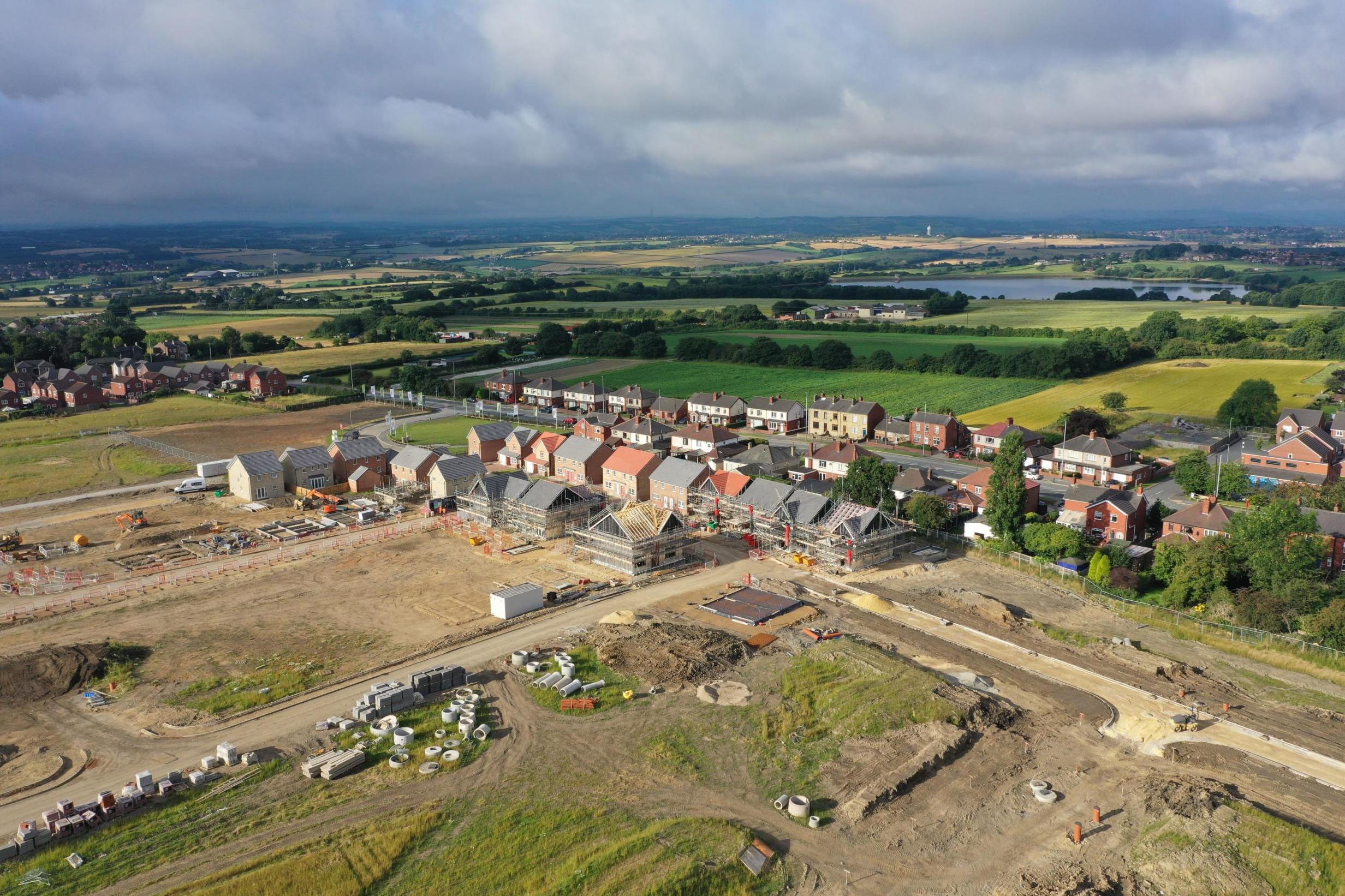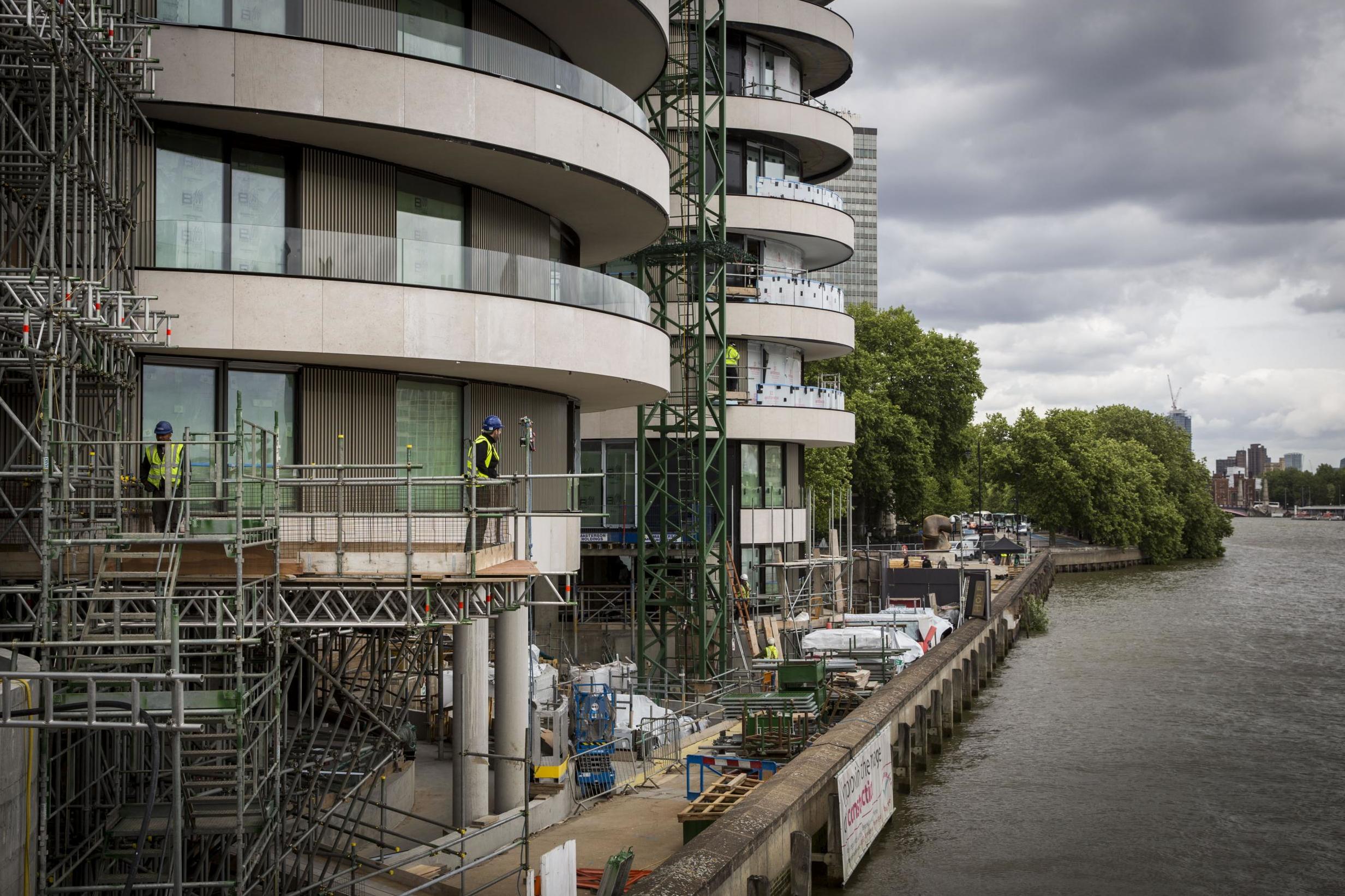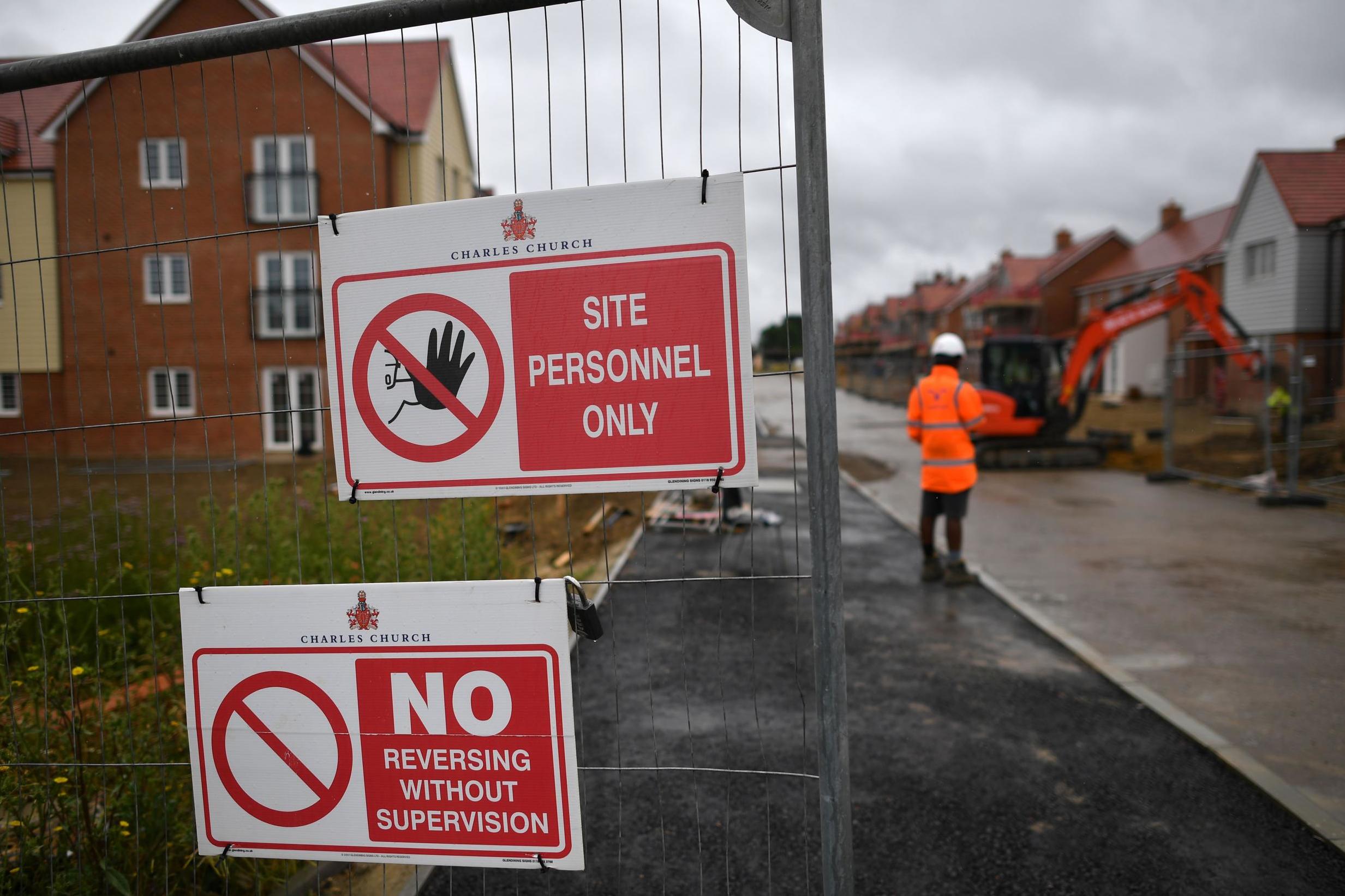Coronavirus could pave the way to change for planning laws – but is Cummings’ plan too radical?
The pandemic could give us the first real opportunity to change our built environment for over 70 years. But in a post-coronavirus world, the government’s plan could be divisive, writes Oliver Bennett


The infamous government adviser Dominic Cummings was obviously going to turn his disdainful eye to planning. He was the power behind Michael Gove’s war on “the Blob” – the pejorative name for the educational establishment – and he shattered the Brexit barrier, as well as the ceiling at Leave HQ, to celebrate that victory. He has it in for cushy Civil Service seat-warmers and the resignation of Sir Mark Sedwill a few weeks ago, attributed to Cummings’ machinations, spoke of his intention to continue his long march through the institutions.
Now Cummings is said to be turning his attention to the built environment, and true to his reputation as the Savonarola of complacent state inefficiency, there’s set to be a bonfire of the planning regulations. Cummings will go through the current planning system like a dose of salts through a drain, getting rid of blockages and downing naysayers like ninepins. Local authority functionaries will quake as they see their power disappear. Last week’s “planning overhaul” from Boris Johnson was, no doubt, the fruition of plentiful meetings, augmenting Johnson’s earlier rallying cry of “Build, Build, Build” – a programme that will bring in radical reforms to our planning system to coincide with a new £5bn recovery plan for the property market and get rid of a system that has lasted since the 1947 Town and Country Planning Act. It will set the stage for “the most radical reforms of our planning system since the end of the Second World War”.
Part of the Cummings-Johnson objective was to supplant the local authority-based planning system with a “zonal” one, perhaps modelled on those in the US and France. Mostly it is set to steer a new frictionless path by way of data science, statistics, prediction and AI – motivated by a deeply-held detestation of logjam bureaucracy, local objectors and the “closed and impregnable” Civil Service who just serve to hold everything up. Plus, Cummings has got personal beef with the ancestral gaff in the north.
What can possibly go wrong? Will our local cafe survive? And how will it affect my plans for my shed?
Some are pessimistic on all these fronts. “There’ll be horrific effects in the body politic as local democracy is cut out of the planning process,” says Ben Derbyshire, chair of HTA Design and former president of Riba. “It means that ‘planning gain’ such as Section 106 [the process by which developers have to provide funds for services and amenities to mitigate their effects] will be seen as an impediment to progress and will go.” It will influence the social and environmental aspects of the streets we walk down daily, he says, with deregulated “permitted development” – that is, building you can do without full planning permission – enabling divisive horrors.
“Talk about carbuncles,” adds Derbyshire. “You haven’t seen anything yet… and the same goes for neighbour disputes.” There’ll be ungainly and antagonistic dormer storeys thrown atop terraces, baroque lean-tos and finial-clad side returns as the public gets stuck into permitted development.

And Derbyshire reckons the big builders will take full advantage too. “Cutting red tape can lead the way to greedy developers exploiting the system and even dangerous gaps in policy and procurement.” The danger, he says, is the potential disengagement of poor housing with local services, leading to a generation of future slums.
Look back at the last decade and there are clues as to the direction of travel. The local authority planning system took a hit during Johnson’s London mayorship when he and Sir Edward Lister, now newly peered and his chief strategic adviser, “called in” many developments over the heads of local planning authorities. The subsequent building boom in London continues but is landing on rockier ground, post-pandemic.
This is now likely to happen across the country, as “Build, Build, Build” turns into public policy from September onwards – and it won’t just be housing but the major infrastructure of roads, railways and wind farms as the government “levels up” the nation. In the so-called “red wall” areas that swung last December’s election, it may yet create a new generation of working-class Nimbies, far from the usual “noisy minority” of serially complaining bourgeois elderly homeowners in London and the home counties.

Derbyshire reckons there are two fronts emerging in Conservative policy on construction. There’s Dominic Cummings, Sir Edward Lister and ex-Policy Exchange wonk Jack Airey – the planning hawks, if you like – and another more one-nation tendency featuring secretary of state for housing, communities and local government Robert Jenrick and Nicholas Boys Smith of lobbying group Create Streets, now head of the Building Better, Building Beautiful Commission which started with late philosopher Roger Scruton at its traditionally-adorned helm. “It’s hardline neoliberals and deregulated economy against old-school Conservatives with a consensus around traditional values,” says Derbyshire.
Cutting red tape can lead the way to greedy developers exploiting the system and even dangerous gaps in policy and procurement
Both camps have wanted the planning system to change but part company over the best ways to do so. “If we’re to build enough homes we need to move from an unpredictable planning system to more predictability for most smaller developments,” says Boys Smith. “That’s the only way we can become less ludicrously reliant on a small number of volume house-builders. That’s about clearer, more predictable regulation – which is not the same thing as no regulation.”
To this end, argues Boys Smith, the government’s proposals to extend permitted development are largely positive. “But to work, building regulations will need to include minimum home sizes,” he says. “And they should be accompanied by clear mechanisms for local councils to set locally popular form-based codes within their local plans.” Thus, any new housing will have to look as if it actually belongs to the place, rather than some high-tech, outer-space kit as do many of the new London developments in places like Vauxhall, which is starting to look like a slice of Sao Paulo on the Thames.

Some are pro-bonfire. “It’s timely,” says Iain Painting of planning and design consultancy Barton Willmore. “The Covid recovery could give us the first real opportunity since 1947 to change.” Planning has become overcomplicated, he says, and needs a wholesale overhaul.
Other “pro” arguments to the putative Cummings-Johnson plans – and to “Build, Build, Build” – are that we small fry who want to add to our homes will be invigorated by deregulation, allowing us to improve and bringing an ecosystem of smaller builders and greater diversity of streetscape. Smaller developers will add density to towns and cities rather than create sprawl on its edges, and break the supply-and-demand stranglehold that the likes of Barratt, Persimmons, Taylor Wimpey and Berkeley have on the housing supply. Research from Nicholas Crafts of the University of Warwick has suggested that liberalising planning could see an extra 100,000 homes a year being built. New certainty in the planning process will enable the economic recovery – and by the way, high streets were already in deep decline before lockdown. By removing the need for planning consent, more homes will be released.
We have a housing crisis. The planning system is slow and expensive. What was a six-week process is now a two-year process. If you’re a start-up developer you just won’t be able to shoulder the costs
“Our planning system is cumbersome and complex, especially for small sites,” says Marc Vlessing, CEO of Pocket Living, which specialises in making first-time buyer homes in little and overlooked places. “At the moment developments of 50 homes have to address the same policies that apply to applications for 5,000 homes. It’s disproportionate, unwieldy and frustrates sustainable small developments.” This is a key reason why fewer homes are delivered than promised, believes Vlessing, and it means that the multiple housebuilders hold all the cards, leading to rising house prices, young people and key workers priced out of homeownership. Open up the small sites, he argues, and it would really assist the post-pandemic economic recovery.
Some architects agree. “The planning system is long overdue a rethink,” says Earle Arney of architectural practice Arney Fender Katsalidis. “Housing development is impeded by local politics and the responsibility for planning the homes we need should be placed with higher authorities with an understanding of the wider national picture.” Arney thinks that a system of development authorities – like the Olympic Delivery Authority – could deliver homes at Nightingale Hospital-speed across the country. After all, we’ve had rapid building in the past, notably in the mid-19th century and the 1930s, when speculative terraces were thrown up across the country in comparatively short timeframes. Now many of them are feted, like the Islington terraces that have provided homes for Johnson and Cummings themselves. Why not allow this kind of building again?

Karen Cooksley, head of planning at law firm Winckworth Sherwood, is another reformist. “We have a housing crisis,” she says. “The planning system is slow and expensive. What was a six-week process is now a two-year process. If you’re a start-up developer you just won’t be able to shoulder the costs.”
Moreover, the local democratic aspect of planning makes it a “political football”, troublesome and full of subjectivity – why, after all, does one person gain permission, and the other not? There’s plenty of room in our cities that isn’t taken up, and some of that could be gained by placing two storeys atop existing blocks as “Build, Build, Build” suggests, and also releasing space above shops with a proviso for key workers.
Public objections needn’t be obstructive to the new order, adds Cooksley: “Small sites feed local connections and good community relations are actually the key to unlocking land.” Nor should we be so hung up about building on the green belt, which gives the impression of bosky and bucolic fields in which we might ramble, but which are in reality unexciting, such as the now built-upon green belt land in Chaul End, Bedfordshire.

There’s another aspect to the planning reforms that give them a significant post-Covid boost. As remote working continues, many offices are expected to become redundant and turned into residential properties – just as ex-industrial buildings became “loft living” in central London in the 1980s.
Still, those considerable “cons” keep coming back. As Finn Williams of social enterprise Public Practice says, “New homes depend on building public trust, and developers need to do better to earn the consent of communities.” The relaxation of permitted development is also leading to smaller homes, says Williams, with less access to amenity space and important infrastructure like schools, parks or healthcare. And they won’t help local economies: rather, they’ll squeeze small and independent shops out of town centres forever.
“The appalling standard of homes built through permitted development is proof we need more planning, not less,” says Williams. “The government should be giving local authorities the powers and resources to plan places that are healthier, more resilient, and sustainable.”
So while the planning system could be slicker and the terminology of planning is terrible to navigate, the Cummings idea of taking an axe to the planning system is bizarre. Planning involves many factors of which the market is only one. There’s also history and heritage, social life, amenity and a sense of place to consider.
As Cummings is a stats-man as well as an axe-man, driven by prediction as well as persuasion – abetted by the data scientists, project managers, policy experts and assorted weirdos he hoped to recruit in January – he will use AI and automation as an important part of the new planning landscape. “They’re trying to automate the planning system by algorithms,” says Ben Derbyshire. “In fact, it’s already going on.” Against this digital facelessness, some fear that accountability will cease and the sense of local democracy in the planning system, however obscure and flimsy it currently is, will go.
So while planning may seem like a boring front, it’s likely to hot up across the country in the post-Covid landscape. It’s about how our country looks, after all, and stirs huge emotions. And the government has a huge factor to contend with outside the data, acronyms and economic imperatives – the feelings of local people. “The last 10 years have seen a huge increase in interest in localism and communities and planning should be about creating wonderful places,” says Cooksley. Cummings, Johnson and “Build, Build, Build” may well be able to ride over their intransigent local authority enemies, but the public will be the ones to truly test their assumptions.
Join our commenting forum
Join thought-provoking conversations, follow other Independent readers and see their replies
Comments